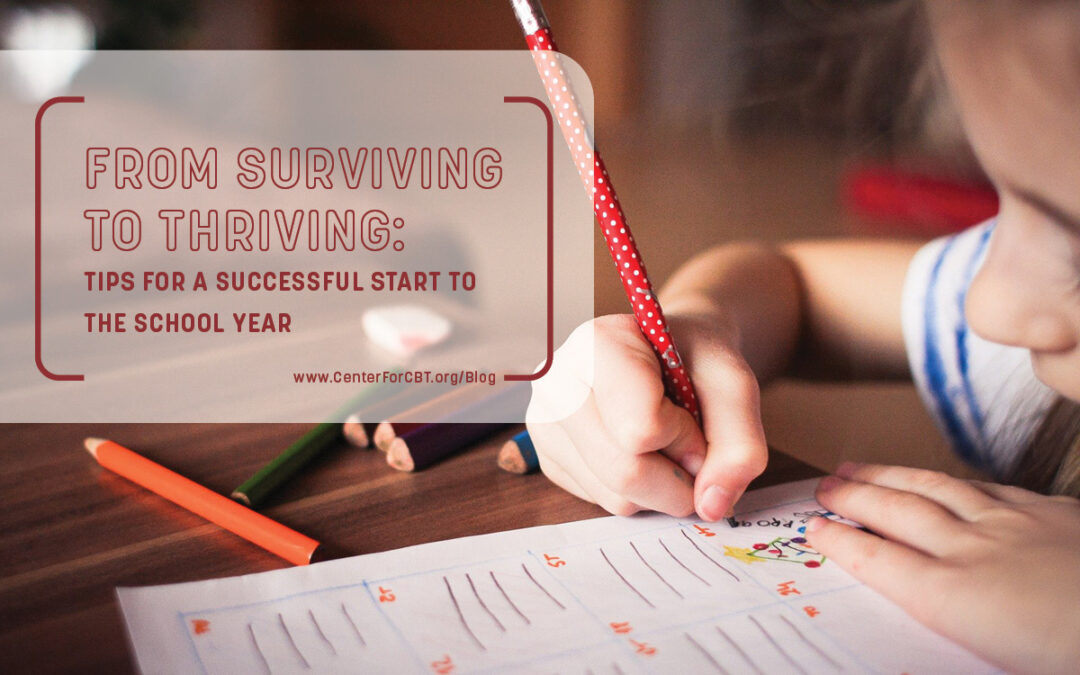Students have spent the past year and a half learning to survive in a sea of uncertainty, having to adapt to sudden shifts in environment and routine in response to the developing health and safety guidelines instigated by the ongoing health pandemic. This year families returning to school must readjust to the familiar, but also acclimate to the unfamiliar. Although there are activities that have been missed, like recess, organizing a new locker, showing off a back-to-school outfit, and connecting friends old and new, there are still many things that are unknown, too.
The transition from summer to school is notoriously challenging for children and families, and this year there are additional preparations for students to make, along with anxieties to overcome. On top of getting up early and learning a new schedule, children must also get used to being around more people in the school building and practice a host of safety protocols. Although caregivers cannot guarantee a “normal” school year, providing clear and factual information may help ease the transition back to school.
To prepare you and your student for the year ahead, follow our countdown guidelines on the path for a successful start:
Two Weeks Before School
- Get your child involved in back to school preparations. Allow them to shop with you, either in store or online, so that they can choose their materials (and feel more engaged).
- Ease them into a new sleep routine. Encourage your child to go to bed at the time they will need to adjust to when school starts. This can be done gradually, having them go to bed a few minutes earlier each night. Discourage the use of phones, tablets, or laptops 30 minutes before bed, and instead encourage them to do a more relaxing activity.
One Week Before School
- Encourage your child to express how they feel about the new school year. Invite them to consider the positive or negative thoughts and feelings they may have about returning to school. If your child doesn’t feel comfortable talking about their feelings, encourage them to draw, journal, or talk to you while playing a game.
- Remind them that even though they may have some difficult moments adjusting to the new year, they have the ability to get through the tough moments! Brainstorm ways that they can take a break or ask for help during the school day (e.g., ask to get water or go to the bathroom, ask the teacher for help). Consider writing or drawing the strategies on a small note card which your child can keep in their backpack.
- Reach out to your child’s new teacher. If the teacher is available, allow your child to meet their new teacher before the first day of school. This allows your child to ask their teacher questions they might be too nervous to ask in a classroom setting and lets them build a relationship with the teacher in advance.
The Night Before
- Work together with your child to prepare their materials. Make a checklist with your child and allow them to pack their bag independently. Be sure to double check that everything made it into the bag!
- Remind your child of what to expect during their first day, such as the name of their teacher and where you will drop them off. It is important to stick to the facts! If you aren’t sure of an answer, be honest with your child that you do not know, and talk about how that feels.
- Check in with your child about how they are feeling and remind them of at least two strategies that you brainstormed the week prior, so that they can use them to help get through the day.
First Day of School
- You made it! In the evening, celebrate with your child. Save a special treat for them to enjoy when they return home after their first day.
- Ask your child to reflect on the things that went well. If the day did not go well, ask them to tell you how they got through it!
- Encourage your child to identify a helpful adult that they can speak to if they need support at school.
Congratulations! You’re off to a great start. While the school year presents a unique set of hurdles, starting the year off on the right foot can help your child overcome them. As the year continues, consider reviewing some tips on how to keep your children organized by developing and maintaining a routine this school year.


